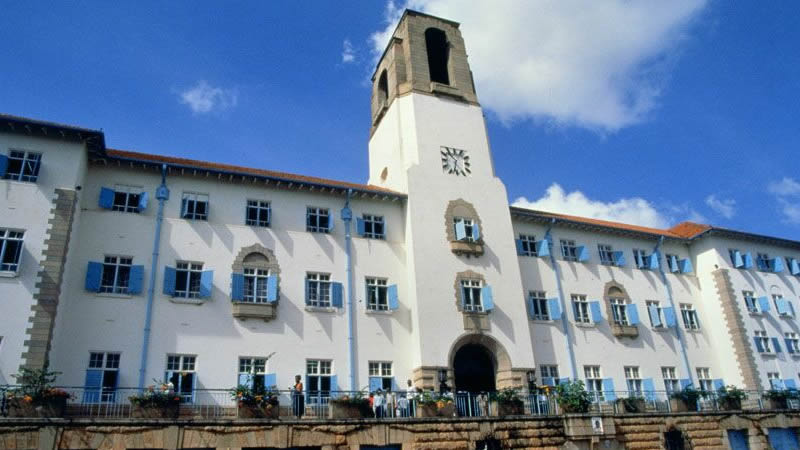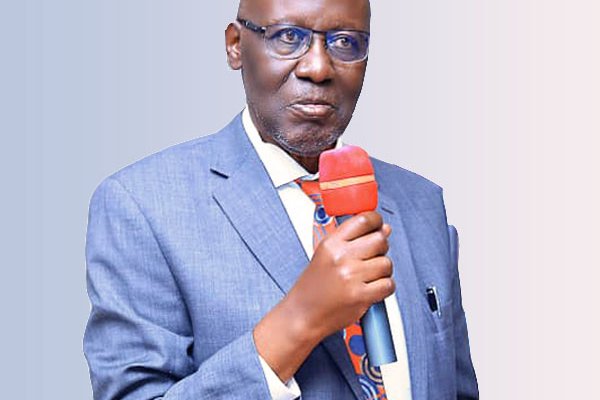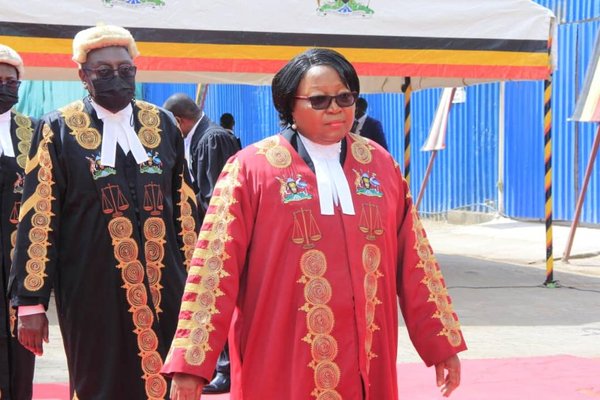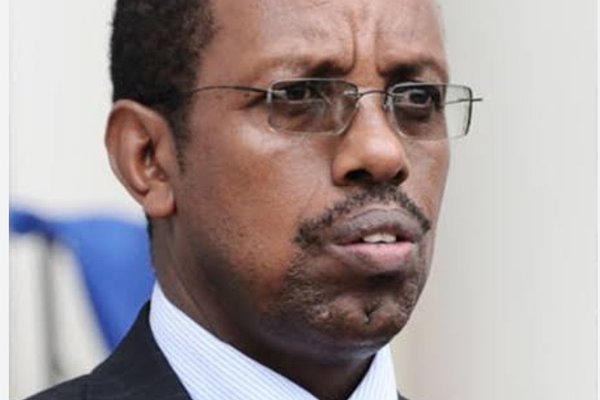At first, Joyce Mpanga wanted to become a nurse. When she was unable to get admitted, she went back to school to continue to a higher level, eventually studying education. She would become a teacher, a deputy headmistress and a lecturer.
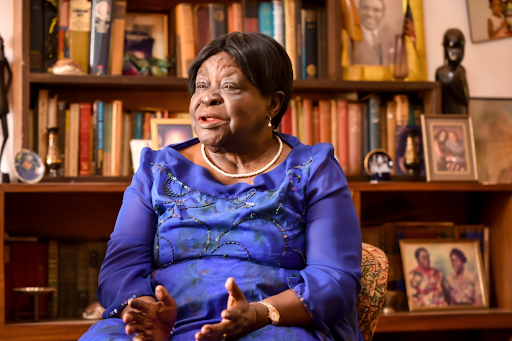
Hon. Joyce Mpanga
The journey to that place started when Mpanga joined Gayaza High School in 1947 from Ndejje High. Mpanga studied at the school from junior one to junior three. After completing Junior three and passing continuation exams which learners sat at the time, she went for interviews at Mengo Nursing School in 1949. “They told me that if I like nursing, I can go back and come back later,” she said. She wondered what to do. The other option was to go to Kings College Budo which had started admitting girls in 1934 but she never wanted to go there.
Entry to Makerere
At the time, she was joining what we now know as secondary level. As her parents were pondering on what to do, Gayaza High School decided to start senior secondary level which ran for four years. Mpanga went back and studied and completed in 1952 after passing the Cambridge School Certificate.
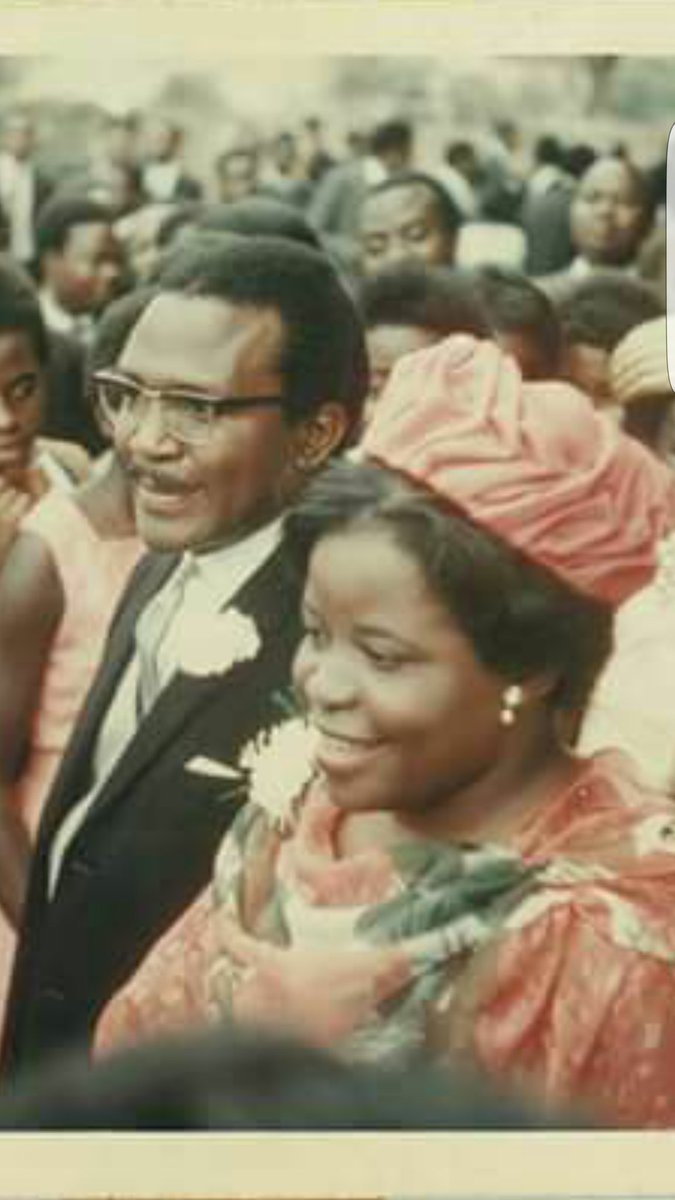
Hon. Joyce Mpanga and her husband, Andrew Fredrick Mpanga.
“I remember when my father visited the school, Miss Cox told him that they were going to try and see if Makerere could take me,” Mpanga said. Makerere admitted her along with another girl from Gayaza and one from Trinity College Nabbingo.
“The headmistress sent a teacher to come to my home and inform us that I had been given a place at Makerere. Everybody was excited. The school was excited. My parents were very excited and so was I,” she said.
At Makerere, entrants first did what is now known as two years of Advanced Level (A level) and then studied for a degree or a diploma. Degrees were both for sciences and arts, and the diplomas were for education, agriculture and veterinary. In the second year of A Level, students who wanted to study for the degree sat London intermediate exams set by University of London while those interested in the diploma sat for exams set by Makerere College.
Mpanga sat for the University of London intermediate exams which she passed and enrolled for Bachelor of Arts. Makerere was then a college that awarded University of London degrees. For the degree, she studied English, history and sociology.
Mpanga was admitted eight years after Makerere opened its doors to female students.
Life as a student
Mpanga was the only woman in the degree intermediate class. It was the first time she was studying with males.
“The intermediate one was the first time I studied with men and of course the men were discouraging us. All the time they would say that you are a girl and you can’t make it. They would just be surprised to see that you’ve made it,” she said. Later, when she did the degree class, Mpanga said she was now used to studying with boys. “They used to tease me and I would tease them back,” she said.
Mpanga contemporaries at Makerere included, Prof. Josephine Namboze, the first female student to graduate with a medical degree from Makerere University. She was also the first female medical doctor in Eastern Africa. “She was very hard working as I remember,” Mpanga said.
At the time she joined, the University Guest House was the girls dormitory. There were only 13 girls in the university. They later moved to Mary Stuart Hall, whose construction had started in 1947. When Mpanga left Makerere in 1958, there were about 50 female students. Male and female students were treated equally, Mpanga said, except that while boys were allowed to get into their halls by midnight, girls had to be in their dormitory by 10:30pm.
The famous undergraduate red gown was in use during the 1950s. It was mandatory for students to don the gown whenever they went out of their halls at night or wherever they went out of campus. Makerere students were very highly respected, Mpanga said. But they also respected themselves. “We had our own self-respect, I am a Makerere student. I can’t do this. Like I see sometimes students moving from Wandegeya, eating maize on the way, how could a Makerere student eat while walking on the street? That was below us,” she reminisced.
Into University politics
Mpanga was always interested in politics. There was a guild which was made up of representatives from halls of residences. Each hall had to send three or four representatives to the guild. “Since I was interested in politics from the beginning, I used to be one of the people who represented Mary Stuart in the guild,” she narrated. Students campaigned for leadership positions but they did not involve outside political parties as it is today.
Unlike much later where strikes were a common occurrence, there were no strikes at Makerere during Mpanga’s time. The last strike had taken place in 1949, and that was when Abu Mayanja was expelled from Makerere for leading the strike over food. However, Mpanga said there were tense moments such as when Kabaka Mutesa II was exiled in 1953 that nearly led to a demonstration.
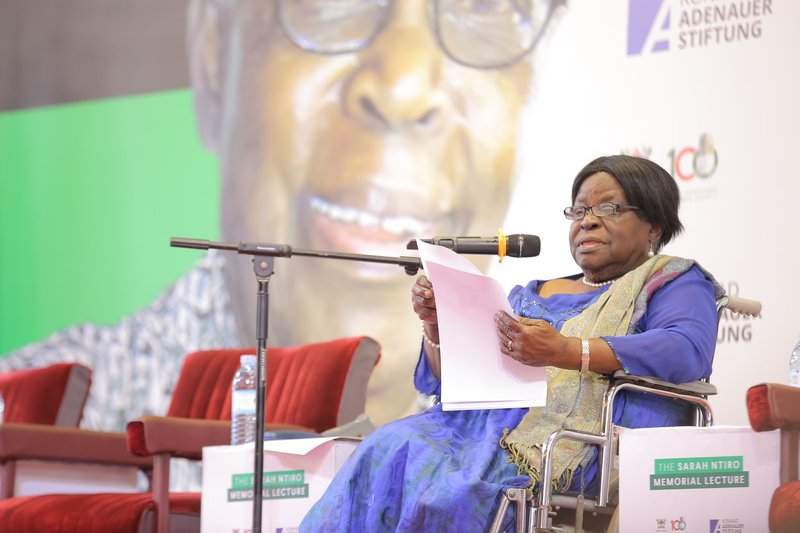
Hon. Joyce Mpanga delivers a keynote speech at the Sara Ntiro Memorial Lecture held at Makerere in 2022.
On the day the Kabaka was exiled, she said, students were gated in their dormitories to ensure that they didn’t move out. But male students forcefully moved out and went to the female students’ hall, calling “Abana ba Buganda, come out”. The girls too moved out. They moved to the arts building lower lecture theatre and started shouting what they were going to do. “We decided on a number of things. One was that we shall never stand up when they’re singing ‘God save the Queen’,” she remembered.
Around that time, the Queen of England together with the Duke of Edinburgh visited Uganda in 1954. As part of the trip, they were supposed to visit Makerere, open the Arts building and plant two trees in the Arts building quadrangle. It was the reason why the Arts building was christened the Queen’s Court. That visit never took place. Instead students were selected to go to Entebbe and meet the Queen and her entourage. The students got the trees, brought them to Makerere and planted them on behalf of the Queen and the Duke.
Loyalty to Buganda kingdom mattered for students like Mpanga, and so she snubbed the opportunity to go to Entebbe and meet the Queen. “I was not one of the students who went to meet them. I can say that I was fairly political and politics outside concerned me. My kingdom Buganda had refused the Queen,” she said.
Graduation, return to Makerere
Mpanga graduated in 1958 with a Bachelor of Arts and a diploma in Education. “And I remember one newspaper put in ‘a double smile for a double entry’ because I got my diploma for education,” she said. Mpanga had completed the degree in 1957 but it took a year between students completing the degree course and when they graduated because their results had to be verified and approved by the University of London. She spent that year studying for the postgraduate diploma. Her graduation brought excitement in her family and village.
“My family was very excited. In fact, I had a death in the family. One of my brothers died. If that didn’t happen, I don’t know what I would have done with all my relatives, because the whole village was saying, ‘We are going to hire a car and see how our daughter is being crowned.’ Many did not come,” she said, referring to the graduation day.
However, her mother and about ten other relatives attended the graduation. Each graduand would be given two invitation cards but Mpanga secured more cards from Tanzanian and Kenyan students whose parents were not coming for the graduation.
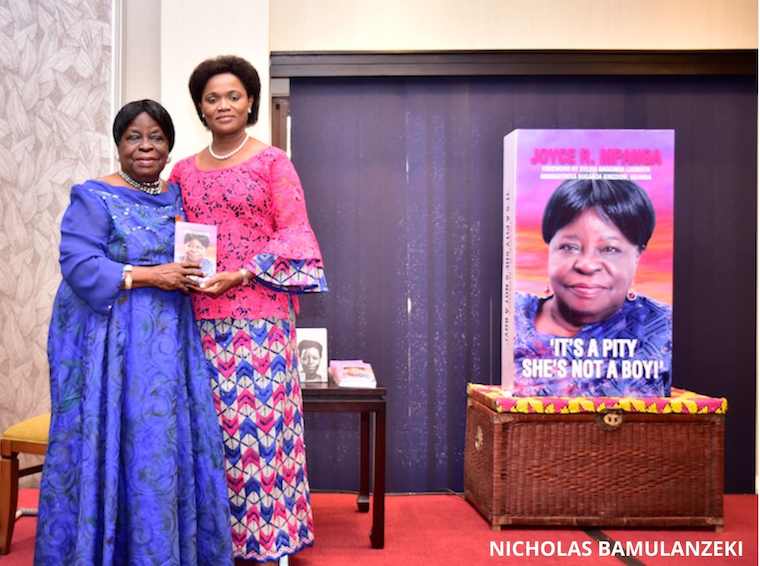
Hon. Joyce-Mpanga with the Nabbagereka of Buganda at the launch of her memoirs
Mpanga got a first-class diploma in education and was quickly earmarked to start teaching immediately after graduation. She was given a job as a part-time lecturer. I was actually a teacher in Makerere College School, but I also taught students who were in the faculty of education,” she says. “It was sort of saying, don’t go very far. We want you to get a second degree and be able to be appointed as a lecturer.”
Mpanga taught for one and half years and then went to do a masters degree in education at University of Indiana, Bloomington campus in America. When she returned, there was no place in the faculty at that time. But Mpanga wasn’t short of offers because Gayaza High School wanted her to become deputy headmistress.
Mpanga took the Gayaza High School offer but then after a short time Makerere advertised a temporary job in the faculty of education in 1964. She applied for it. Mpanga sat for the interviews with three other applicants. She passed and was given the job. “I think I can say I was the first African woman as a lecturer. They were African men who were lecturers. But I don’t remember any woman who was a lecturer at that time. I started as a lecturer in 1964,” she said.
She added, “I felt proud. I won’t hide that. I felt proud because how many African lecturers were there?” Prof. Yusuf Lule, Makerere’s first black principal, was excited to have the first African female lecturer and didn’t want to let Mpanga go. When her 18 month contract expired, it was extended.
Mpanga stopped teaching in 1967 and went to Britain to stay with her husband who couldn’t return to Uganda following the 1966 crisis in which prime minister Milton Obote abolished the Buganda kingdom. Her husband was the kingdom’s attorney general at that time.
Final reflections
Looking back at her time in Makerere University, Mpanga said, “I am very proud of Makerere. Although there are a number of things today that don’t look like the Makerere I was in, the Makerere that I entered was extremely beautiful. We had beautiful lawns and there were very few but very beautiful buildings.”
Her advice for the university was to keep its name: “Makerere should keep that name as beautiful and as dignified as we used to have it. We used to be very dignified and you always felt proud to come to Makerere. And of course, even those who are there now should be proud that they’ve made it.”
On November 18th, 2023 Ms Mpanga passed away. She was 90 years old and left behind a legacy, having been a woman of many firsts and inspiring many other women.
Related News
![]() Please join hands with the Makerere University Endowment Fund as it works towards attracting & retaining the best faculty, providing scholarships, and investing in cutting-edge research and technology.
Please join hands with the Makerere University Endowment Fund as it works towards attracting & retaining the best faculty, providing scholarships, and investing in cutting-edge research and technology.
